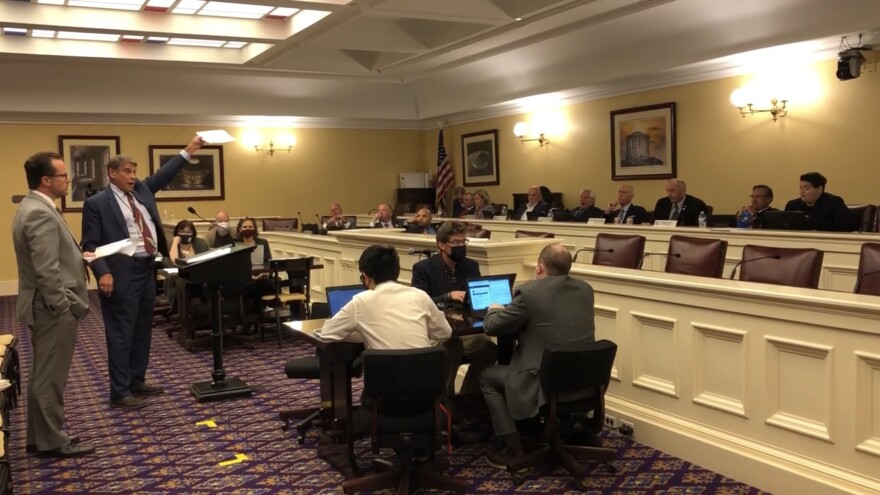The bill, HB435, allows students and employees to opt out of getting the COVID-19 vaccine, even if it's required at school or work.
The measure was voted out of committee Tuesday evening after one hearing and was set for a full House vote on Wednesday. But House Speaker Bob Cupp (R-Lima) says members want to explore a few more issues.
Rep. Ron Ferguson (R-Wintersville) says the bill addresses a lot of the concerns from the caucus and Ohioans.
"It's really close to being the bill that we need to protect employees, but it's not quite there yet. And I think that we're going to continue to work on it to firm it up and make sure it's exactly the right step," says Ferguson.
Moments before the bill was set for a possible vote on the House floor, a group calling itself the "Ohio Vaccine Coalition" released a statement in opposition to the bill. The coalition consists of more than 100 organizations and businesses, including the Ohio Chamber of Commerce and the Ohio Hospital Association.
The statement from the Ohio Vaccine Coalition said, "Unfortunately, the provisions of House Bill 435 fall short of what our state needs as we work toward pandemic recovery and this bill does not address the concerns expressed by the medical, business and university communities about prior proposals of a similar nature."
The group stressed the importance of protecting an "employer's right to make decisions in the best interest of their employees."
Cupp says it's about finding a balance of the different viewpoints represented in the Republican caucus in order to reach a consensus.
"What you're just seeing play out is the normal process here of trying to get to something that is reasonable, is common sense, and has a sufficient consensus that it should go forward and become law," says Cupp.
When asked if the opposition from groups like the Ohio Chamber of Commerce played a role in the decision to stall the bill, Cupp said "I haven't seen their statement yet."
The bill will be re-referred to a House committee, but Cupp did not provide additional details.


